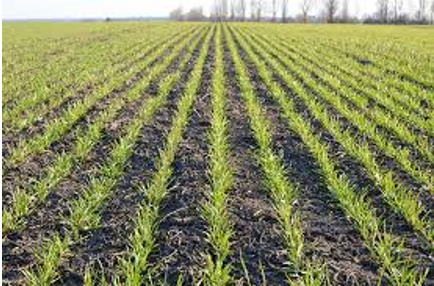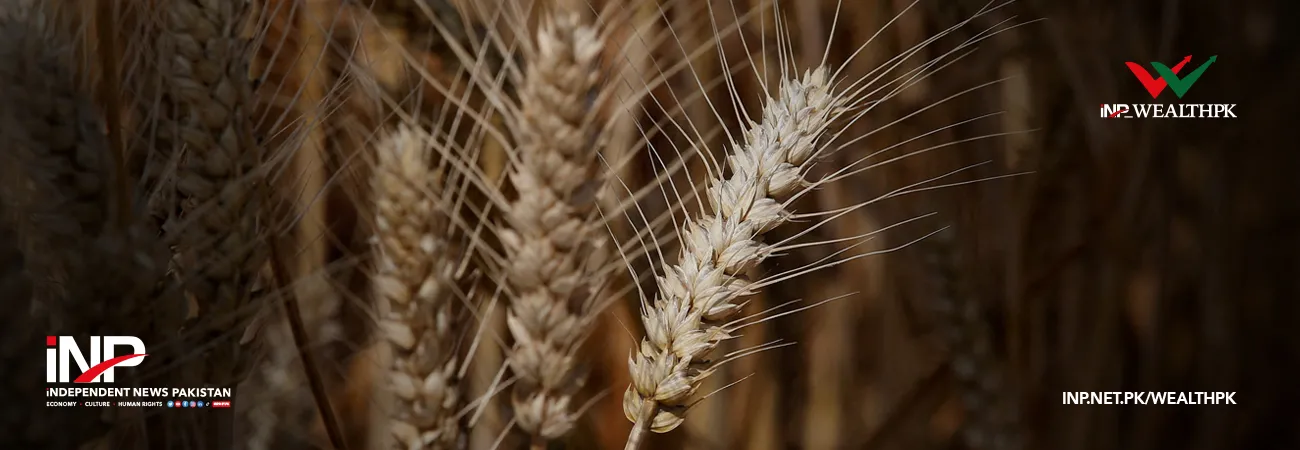INP-WealthPk
Muhammad Luqman
Wheat sowing is gaining momentum across Punjab, as the optimal cultivation window is set to close by November 30. “The conditions in the Barani (rain-fed) areas are very conducive this year due to sufficient soil moisture following the September floods,” Dr. Anjum Ali Buttar, consultant at the Punjab Agriculture Department, told Wealth Pakistan. “Wheat has been sown over 3 million acres of land so far. Sowing is particularly in full swing in Rawalpindi and DG Khan divisions, while the pace is somewhat slower in central Punjab,” he added.
Punjab has set a target of 16.5 million acres for wheat cultivation during the 2025–26 season. The recommended varieties for this year include Akbar-2019, Dilkash-2020, Fakhar-e-Bhakkar, Aruj-2022, Nishan, Pakistan-2013, Faisalabad-2008, MH-2021, MA-2021, Subhani-2020, and Wafaq-2023. “Hopefully, wheat will be cultivated over 95 percent of the target area by November 30,” said Dr. Buttar, who is also former director general of the Punjab Agriculture Department.
Currently, there is no shortage of agricultural inputs in the province. About 100,000 bags of certified wheat seed are available with the Punjab Seed Corporation and private sector companies. According to Dr. Buttar, the Punjab government, under its post-flood relief package, is providing all necessary support to growers, including interest-free loans, for the cultivation of Rabi (winter) crops.
Weather experts also believe that despite the destruction, the recent floods have benefited the lands located near the rivers. “The floodwaters not only helped the soil retain moisture but also deposited alluvial material rich in organic matter, making it more fertile,” said Muhammad Riaz, former director general of the Pakistan Meteorological Department. In an interview with Wealth Pakistan, he cautioned that in certain areas where floodwaters remained stagnant for an extended period, the physical properties of the soil had been damaged due to the sand deposits.
“On the whole, the improved soil conditions and favorable weather are likely to help the farming community get a good crop this year,” Riaz added. He recalled that the floods of 2022 had also resulted in a bumper wheat harvest. Despite optimism, many farmers remain concerned about potential delays in wheat sowing, particularly in sugarcane-growing areas of Punjab. “Any delay in the harvesting of sugarcane due to late purchases by the sugar mills can prove disastrous,” warned Akhtar Farooq Mayo, Chief Organizer of Kissan Board Pakistan.
He noted that the federal government has recently announced November 15 as the start date for the sugarcane crushing season across the country. “But non-committal statements from the Pakistan Sugar Mills Association about the actual start of crushing are a real source of concern,” Mayo said. He urged both the federal and Punjab governments to ensure that the crushing season begins on time and that farmers are paid promptly. “Sugar mills should be issued stern warnings that any delay in starting the crushing season will result in strict penalties,” he emphasized.

Credit: INP-WealthPk













